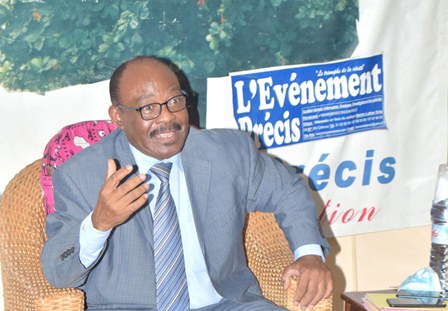
Views: 31 The president of Fonac expressed his opinions on the organization of the legislative elections scheduled for January 8, 2023. jean-baptiste elias provided his opinions regarding the number of parties that participated in the aforementioned elections, the manner in which the elections were conducted, the manner in which the results were announced, as well as the rate of participation, on the "Carte sur Table" program of radio Océan Fm.
What you should know: He thought that the fact that 7 out of 8 parties had expressed an interest in running in the elections was "already good" in terms of the number of parties. The seven had competed all the way through, and the outcomes had been revealed.
To be eligible to share the 85 delegate seats first and then the 24 seats designated for women, a party had to receive 10 percent of the national vote at the national level, according to Article 146 of the electoral code. The president of Fonac estimates that it would have done the calculations electoral district by electoral district based on article 2 of the decision of the Cena from January 11, 2023, which showed the distribution of seats.
This is because a legislative election is taking place. He asserted, before adding, "We have 24 electoral constituencies in Benin. We are in a legislative election, and the first 85 seats are distributed based on the proportional voting system.
The first constituency is made up of the three districts of Karimama (5 districts), Kandi (10 districts), and Malanville (5 districts), i. e.
totaling twenty boroughs. It should be possible to determine the votes of this first electoral constituency separately under normal circumstances.
This would reveal how many votes each party received in accordance with the ballots cast in these 20 districts. And it is from that point that we will designate what we refer to as the electoral coefficient, based on which the three seats made available for this constituency will be allocated, with the seat regarding the woman, of course, going to the party that has received the most votes, as the code states, as is customary.
When discussing legislative elections, the president of Fonac bemoaned, "We have none of this and announce the distribution of seats without providing any details, but there is no overall figure giving at the national level makes it possible to allocate seats to a political party.". He emphasizes, for instance, that if we had completed the task in the manner he has just described, we would have discovered that the electoral coefficient of the second electoral district differs from that of the first electoral district.
"As the electoral coefficient varies, no electoral district had a higher electoral coefficient than the others. To put it another way, "there are deputies who are elected with 4,000 votes and others who have 10,000 votes in other constituencies but who are not elected and yet it is like the rule of proportional representation," he continued.
In his statement, he makes the case that the Cena decision is flawed because it lacks disaggregated data. Between the lines: He also brought up the violation of Article 92, which states that following the making of the folds, a copy of the minutes and a copy of the tally sheet must be immediately given to the representatives of each party or candidate present.
He bemoaned the fact that "in most of the 17,749 voting stations, the representatives of the political parties did not have this report, nor this counting sheet when it is a right for them," saying that the Cena should have made arrangements to carry out this duty and that if it had not been done, it should be provided to him when a party requests it. Everything would be resolved by doing that.
He ends the question by pleading with the ground, "I beg knee to the ground that we can give the elements to whoever wants to have them so that there is no bad loser that I come and shout in the air!" before explaining what he believes to be the cause of the lower turnout. The primary causes of the absences, in his opinion, were the non-clearance of the list and the lack of information provided by Beninians of voting age who did not register themselves but appeared on the list because they had registered at Ravip.
He promoted the algorithm of the Anip, which made it so that some voters, despite being on the list, were compelled to move involuntarily from one position to another, preventing them from casting a ballot. Additionally: He made sure to emphasize the messages that voters sent to politicians through their votes as well as the outcomes that followed.
He said that the results "sent two messages: one of satisfaction for those who voted for the parties of the movement, and of frustration or dissatisfaction for those who voted for the parties of the opposition." He also denounced electoral corruption and urged politicians and voters to take precautions to defend themselves whenever there were election-related appointments. I am Anselme Houenoukpo.
He bemoaned the fact that "in most of the 17,749 voting stations, the representatives of the political parties did not have this report, nor this counting sheet when it is a right for them," saying that the Cena should have made arrangements to carry out this duty and that if it had not been done, it should be provided to him when a party requests it.


No comments:
Post a Comment